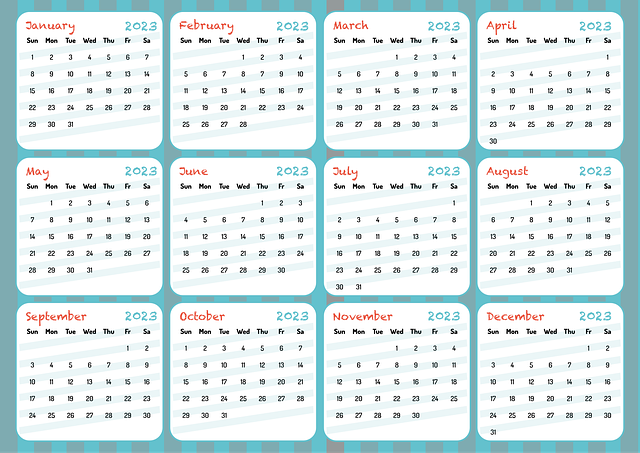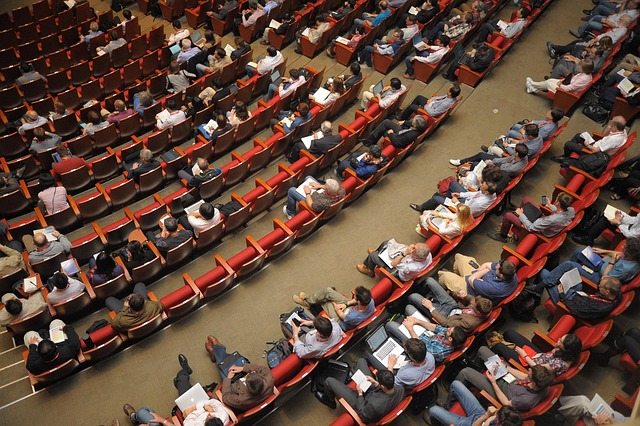Social media events are a powerful tool for local businesses to enhance their online presence, engage customers, and drive sales. Effective event planning involves defining clear goals, understanding target audiences, and strategically using social media platforms. Key strategies include location-specific hashtags, optimal posting times, visual content, live streaming, and interactive elements. Pre-event strategy essentials include setting objectives, identifying demographics, selecting digital tools, creating visually appealing content, partnering with influencers, and measuring success through KPIs. Regular evaluation ensures continuous improvement and fosters success in event planning for local businesses.
Social media events, when skillfully managed, can be a game-changer for local businesses. This article explores the transformative potential of integrating social media into event planning strategies. We delve into understanding the unique power of these events, breaking down key components for success, and offering effective audience engagement tactics. From pre-event strategy creation to measuring impact and optimizing future events, this guide equips local businesses with the tools to excel in event planning for maximum reach and ROI.
- Understanding the Power of Social Media Events for Local Businesses
- Key Components of Successful Event Planning
- Strategies for Engaging Your Audience on Social Media Platforms
- Creating a Comprehensive Pre-Event Strategy
- Measuring Success and Optimizing Future Events
Understanding the Power of Social Media Events for Local Businesses

Social media events offer local businesses a powerful platform to engage with their target audience and foster meaningful connections. In today’s digital era, where online interactions dominate, strategically managed events can revolutionize how brands connect with customers. These virtual gatherings, tailored to the specific needs of local enterprises, provide an opportunity to showcase products or services, share valuable insights, and create a sense of community.
Effective event planning involves understanding the unique dynamics of social media platforms and leveraging them to maximize reach and impact. By creating engaging content, utilizing relevant hashtags, and fostering real-time interactions, businesses can attract new followers, build brand loyalty, and drive conversions. Event Planning for Local Businesses is not just about organizing an online meetup; it’s about crafting an immersive experience that resonates with the target market, ultimately contributing to business growth and success.
Key Components of Successful Event Planning

Effective event planning is a meticulous art, and social media events are no exception. For local businesses looking to make their mark online, a well-managed virtual gathering can be a powerful tool. The key lies in several essential components that, when combined, create an engaging and successful experience.
Firstly, defining the event’s purpose and goal is crucial. Is it to increase brand awareness, launch a new product, or foster community engagement? A clear objective guides every decision, from choosing the right platform (e.g., Instagram Live, Facebook Events) to setting a date and creating an agenda. Secondly, understanding the target audience is vital. Tailoring content and activities to appeal to attendees’ interests ensures higher participation and satisfaction. Successful event planners also excel in promoting the event through various social media channels, creating a buzz before the big day, and encouraging user-generated content post-event.
Strategies for Engaging Your Audience on Social Media Platforms

Social media platforms offer a powerful toolset for event planners aiming to engage local audiences. For event planning in the local business scene, creating a buzz before, during, and after an event is key to success. One effective strategy is to utilize hashtags specific to the event and location, encouraging attendees to share their experiences with relevant tags. This not only amplifies reach but also fosters a sense of community among participants. Timing is crucial; scheduling posts at optimal times when your target audience is most active can significantly boost engagement.
Visual content is another vital element. High-quality images and videos capture attention, convey the event’s atmosphere, and encourage sharing. Live streaming takes this a step further by providing an immersive experience in real time, fostering direct interaction with attendees. Additionally, interactive elements like polls, quizzes, or contests can actively involve your audience, creating memorable moments associated with the event and leaving a lasting impression.
Creating a Comprehensive Pre-Event Strategy

Before an event, meticulous planning is key. For local businesses looking to host or participate in social media events, crafting a comprehensive pre-event strategy is essential for success. This involves defining clear objectives and target audiences, aligning them with the platform’s reach and demographics.
Researching and selecting the right digital tools for promotion, registration, and engagement is also crucial. Content creation—designing visually appealing graphics, crafting compelling copy, and preparing interactive elements—should be a significant part of this phase. Additionally, identifying potential influencers or brand ambassadors to amplify the event’s reach can significantly enhance participation and overall impact for local businesses in their event planning for social media.
Measuring Success and Optimizing Future Events

Measuring success is a crucial aspect of event planning, especially for local businesses looking to make their social media events stand out in a competitive market. By setting clear goals and defining key performance indicators (KPIs), organizers can assess the effectiveness of their strategies. For instance, tracking engagement rates, such as post interactions, comments, and shares, provides insights into audience involvement. Additionally, analyzing reach and impressions can reveal how far the event’s content extended, helping to understand its potential impact on brand visibility.
Optimizing future events is directly influenced by these measurements. Identifying what worked well and what areas need improvement allows for refining strategies. For local businesses, this might involve adjusting content types, timing, or platforms to better resonate with their target audience. Regular evaluation ensures that each subsequent event builds upon successful elements, fostering a continuous cycle of enhancement in event planning for local businesses.



